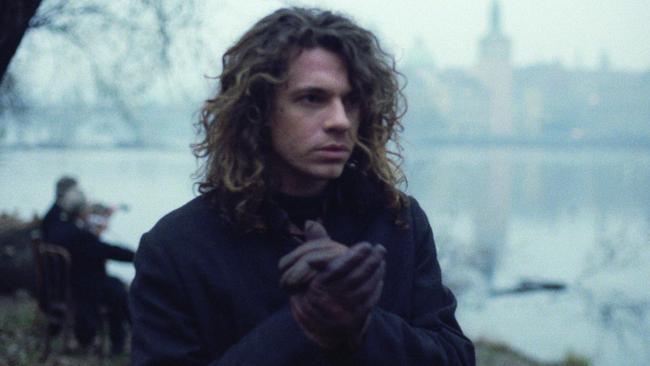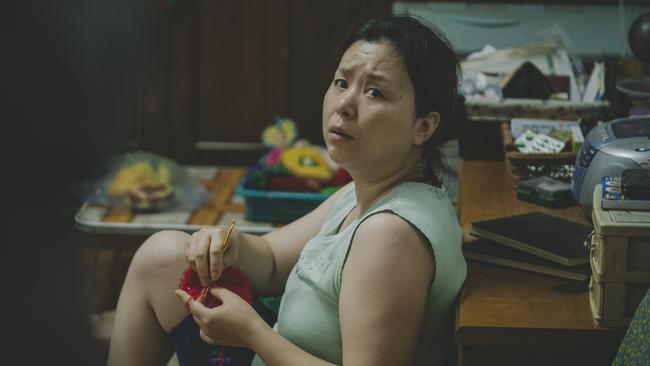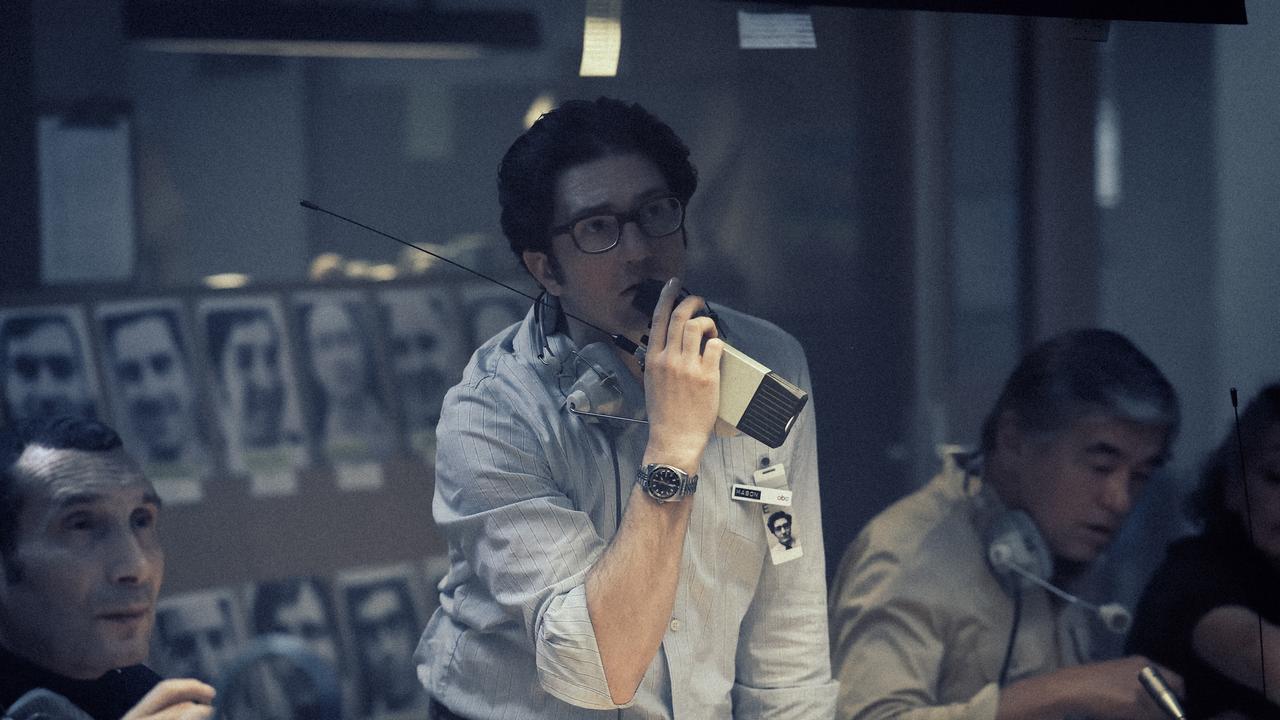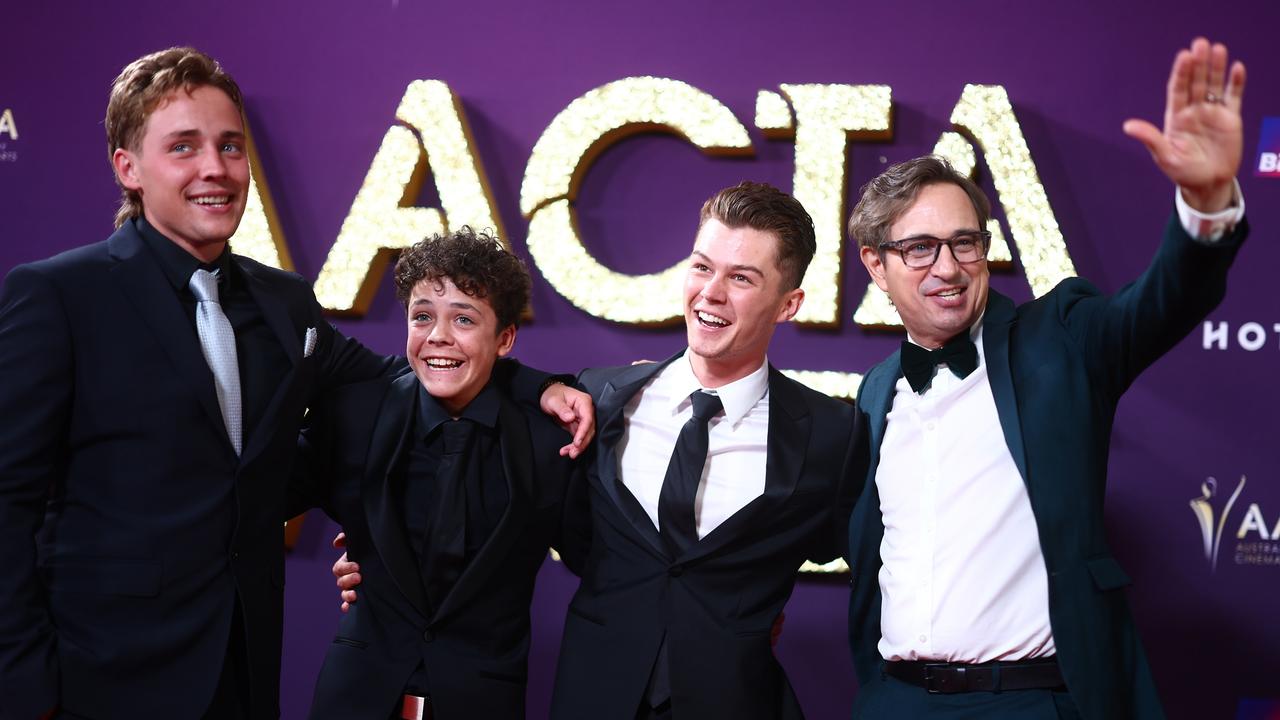Tragic hero gets his due
Mystifyis a terrific documentary on Michael Hutchence and as complete a portrait of a talented singer as you could wish.

In 1986, director Richard Lowenstein made a terrific movie about the lives of young people living in the Melbourne suburb of Richmond. Sam, the principal character in Dogs in Space, was played by the lead singer of INXS, Michael Hutchence, and he gave a flawless, immensely charismatic performance in the role. Oddly enough, Lowenstein’s excellent new documentary on his friend, Mystify, doesn’t mention Dogs in Space at all, and nor does it touch on Hutchence’s qualities as an actor. Apart from that rather curious omission, Mystify is a detailed and revealing portrait of a gifted musician whose apparently charmed life ended tragically.
Lowenstein seems to have had access to just about every one of Hutchence’s most important friends and family members, including his girlfriends. But rather than fill his documentary with talking heads, the director uses voiceover commentaries with maximum effectiveness. By this means he’s able to flesh out a comprehensive biography of Hutchence’s all-too-brief life, from his rather unhappy childhood to his lonely death in a Sydney hotel room. There are family photographs and home movies and numerous audio interviews, including with Michael’s father and with Kylie Minogue. Much of the film centres on the happy times as the band becomes more and more successful.
Lowenstein has said that while making the film he wasn’t assured of obtaining the rights to use the music of INXS; he was eventually granted permission to use it, but made the film not knowing for certain if it would be available. The result is that the music, though very much a presence of course, doesn’t dominate this biography.
In the summer of 1991, INXS performed at London’s Wembley Stadium to a sellout crowd of about 72,000 people. That represented the peak of Michael’s career, and the last part of the film homes in on his troubled last five years.
What comes across strongly is Michael’s charm and humour and how his character changed so dramatically after he was punched in the head by a Copenhagen taxi driver in 1992 and fell, bleeding, on to the street.
After this, as his friend Bono puts it, “sweet insecurity became deep insecurity”.
He lost his sense of smell and became increasingly morose and aggressive. This was the period in which he became involved with Paula Yates, wife of Bob Geldof, and became a target of the international paparazzi.
Lowenstein has assembled a remarkable amount of rare material for this most illuminating portrait — including footage of Yates conducting a rather flirty interview with Hutchence in 1985, 10 years before they began a relationship.
Mystify is a terrific documentary, and as complete a portrait of this talented singer as you could wish.
A small footnote: my one encounter with Hutchence was during the 1986 Cannes film festival. I was rushing into the building where the Australian film office was located on the Croisette when I passed a scruffy looking man sitting on the steps with his hat on the ground beside him.
I dropped a few coins into the hat as I passed by, oblivious to the identity of the man. Hutchence was, apparently, vastly amused.
Mystify: Michael Hutchence (MA15+) 4 stars
Limited national release from Thursday
-
SUBVERSIVE SATIRE PACKS A PUNCH
The latest film from South Korea’s most celebrated director, Bong Joon-ho, reaches our cinemas fresh from winning the Palme d’Or in Cannes last month and the lucrative Sydney Film Prize a couple of weeks ago. Bong’s CV is an impressive one that includes the crime thriller Memories of Murder (2003), the terrifying monster movie The Host (2006) and the wonderfully weird Snowpiercer (2013). Parasite sounds like a horror movie, but it isn’t, at least not in the usual sense of the word. Instead it’s a wily and frequently bitterly funny examination of class warfare, with a bit of bloodshed thrown in.

The Song family, husband Ki-taek (Song Kang-ho), wife Chung-sook (Jang Hyae-jin) and their two adult children, son Ki-woo (Choi Woo-sik) and daughter Ki-jung (Park So-dam), live in a shabby basement in the city. They’re all unemployed, but — as we’re about to see — they’re extremely resourceful. When we first meet them they’re having trouble getting an internet connection — they can just about tap into a neighbour’s Wi-Fi, but only when they’re in the toilet. Stink beetles have invaded the area and the efforts of an exterminator employed by the city to eradicate the pests almost suffocate the Songs. Added to which, drunks tend to use their outside wall as a toilet. All in all, the Songs aren’t having much fun.
But then a school friend of Ki-woo comes up with a possible job offer. He’s been tutoring the young daughter of the wealthy Park family, but he’s going away — maybe Ki-woo could take his place? Ki-woo has no qualifications, but that’s no problem because his sister is an expert forger and soon Ki-woo finds himself welcomed in the palatial, architect-designed home of the wealthy Park family. His teenage student, Da-hye (Jung Ziso), is immediately smitten with her new tutor, and her mother, Yeon-kyo (Jo Yeo-jeong) is so pleased with him that she readily accepts his recommendation of an art teacher for her precocious small son, Da-song (Jung Hyeon-jun). Before long “Jessica”, aka Ki-jung, is filling that position, with forged credentials, of course. And in no time at all she’s compromising Mr Park’s chauffeur by leaving her panties in the back seat of the family limo after he drives her to the station. The hapless chauffeur is replaced by Ki-taek. Chung-sook is soon installed as the Park housekeeper after her unfortunate predecessor, Moon-gwang (Lee Jeong-eun), who is allergic to peaches, becomes so sick — thanks to the Songs’ surreptitious use of the fruit — that her employers are persuaded to believe she is suffering from TB.
Now that all four members of the Song family are employed in the Park mansion, director Bong switches from the playfulness of the early scenes into a mood that becomes steadily darker as the film proceeds. Moon-gwang has been unceremoniously ejected from the house, but it turns out that she’s left behind a secret, one that will eventually have an impact on both families, and will lead to violence.
There’s a lot going on in this very smart black comedy. Bong’s views on the gulf between Seoul’s rich and poor are incisive, as are his hilarious critiques of North Korea and its earnestly conformist TV newsreaders. He avoids the trap of making the wealthy and basically snobbish Parks too obnoxious, but he clearly sides with the Songs so that, when they’ve virtually taken over the house while the owners are away on a camping holiday, we find ourselves totally on their side when their employers make an unexpected return. It’s scenes like this in which Bong demonstrates how skilled he is at combining suspense with humour.
Parasite is a subversive delight, and despite its hefty 2¼-hour running time is never dull because Bong keeps shifting the goalposts so that, just as we think we know where the film is heading, he changes tack and pulls another joker from the pack. It’s a pleasure to be immersed in the work of this consummate artist.
Parasite (Gisaengchung) (MA15+) 4.5 stars
Limited national release



